My green thumb came only as a result of the mistakes I made while learning to see things from the plant's point of view.
~H. Fred Ale~
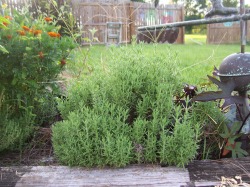
This is SOOOOO true!!! I can't tell you how many plants I have caused to wilt, turn brown, be eaten by pests, and even do I dare say...killed by not understanding the individual need of that particular species of vegitation. But, as with anything else, practice and perseverance makes perfect! Well, maybe not perfect, but certainly better.
You can bury alot of troubles by digging in the dirt.
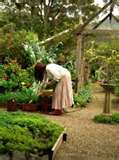
This is where I find my solice, in my garden. There is no better therapy than getting your hands dirty and reaping the benfits of all the loving labor. An herb garden is one of the easiest and low maintainace of all gardens and that's probally why I love it so! Although I keep a modest vegetable garden, and flowers grow all amongst my yard, true bliss for me is found in my herb garden. During the warm months I have fresh herbs within a hands reach to flavor my meals and when winter calls I have already harvested my crop for drying.
There are many holistic (natural) health benifets to herbs (which you can read about on the Natural Alternatives page). As for the dried herbs, of course I can still use them in my food, but I also make herbed oils, vinegars, jellies, and soaps with them.
There are many holistic (natural) health benifets to herbs (which you can read about on the Natural Alternatives page). As for the dried herbs, of course I can still use them in my food, but I also make herbed oils, vinegars, jellies, and soaps with them.
How Can I Be Green In My Garden?
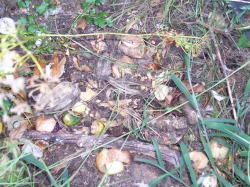
Composting is one way that is beneficial not only in your garden, but for the environment. (You can read more about composting under the compost page.) Not only can you use this rich, sweet smelling, organically rich soil to build your beds, but you can make a "tea" with the rain water you have collected to feed your plants.
Compost tea is easily made by soaking or steeping compost in water. The resulting compost tea is used for either a foliar application (sprayed on the leaves) or applied to the soil. We all know that compost is a wonderful addition to soil and helps our gardens grow better. You and your garden plants can benefit even more by using compost tea.
By using compost tea to replace chemical-based fertilizers, pesticides, and fungicides, you can garden safer and be more protective of the environment. Compost tea:
Compost tea is easily made by soaking or steeping compost in water. The resulting compost tea is used for either a foliar application (sprayed on the leaves) or applied to the soil. We all know that compost is a wonderful addition to soil and helps our gardens grow better. You and your garden plants can benefit even more by using compost tea.
By using compost tea to replace chemical-based fertilizers, pesticides, and fungicides, you can garden safer and be more protective of the environment. Compost tea:
- Increases plant growth
- Provides nutrients to plants and soil
- Provides beneficial organisms
- Helps to supress diseases
- Replaces toxic garden chemicals
Fill a bucket one-third full of finished compost. Add water to the top of the bucket. Let the mixture steep for three to four days. Strain the mixture through cheesecloth or other porous fabric into another container. Add any remaining solids to the garden or return them to the compost bin. Dilute the remaining liquid with water so it's the color of weak tea. Apply compost tea according to each plant's requirements (check seed packets and gardening books for details). For best results, work early in the morning or on cloudy days.
Eliminate Chemicals
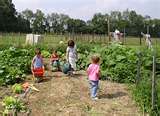
The consequences of industrial chemical use, like pesticides on human, animal, and environmental health are poorly understood. Evidence continues to mount that even limited exposure to residues from pesticides registered for use and applied at legally permitted rates can have harmful effects. The rapid increase in chronic childhood illnesses such as asthma, allergies, chemical sensitivities, and behavioral disorders, as well as increases in childhood cancers, is leading researchers to ask questions about the safety of some chemicals in and around the home.
Good gardeners today still believe that pests and diseases should be kept firmly in their place, but without the use of harmful chemicals. While there are many quick and easy remedies the best solution is prevention. And that prevention starts in the soil where most of your problems originate. Keep your soil rich in organic matter you have made from your compost and I promise most of your problems are solved! GO ORGANIC AND AVOID UNCERTAINTY!
Areate With Worms
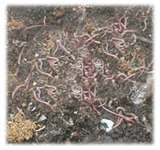
Areateing with worms is not only eco-friendly, but it brings oxygen and nutrients to the roots of your plants where they need them. One of the best ways I have found to be the easiest way to get worms in my garden is to put them there.
Having a worm farm at home is a step in the right direction to making your home eco friendly, which in turn is helping the environment and could also save you money as well as reducing your household waste.
I find that my worm farm takes up little time and in a way, is a different pet for my children. Worms know how to keep themselves occupied and takes very little upkeep or maintenance.
What is a worm farm?
Worm farming or vermicomposting is the practice of feeding organic waste to worms to produce a rich compost, to do this the worms break down your organic rubbish such as fruit or vegetable peelings . With a little help from our wiggly friend the worm you can make worm juice which can be used as a fertiliser! Otherwise known as worm tea. This can be used to water your indoor and outdoor plants. If you are interested in building a worm farm just post it on the blog page and I will be happy to share a few options with you.
Having a worm farm at home is a step in the right direction to making your home eco friendly, which in turn is helping the environment and could also save you money as well as reducing your household waste.
I find that my worm farm takes up little time and in a way, is a different pet for my children. Worms know how to keep themselves occupied and takes very little upkeep or maintenance.
What is a worm farm?
Worm farming or vermicomposting is the practice of feeding organic waste to worms to produce a rich compost, to do this the worms break down your organic rubbish such as fruit or vegetable peelings . With a little help from our wiggly friend the worm you can make worm juice which can be used as a fertiliser! Otherwise known as worm tea. This can be used to water your indoor and outdoor plants. If you are interested in building a worm farm just post it on the blog page and I will be happy to share a few options with you.
Garden Mantra?
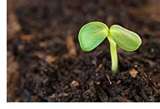
Putting the ‘right plant in the right place’ is a common gardening mantra. Growing plants suited to your region, soil type and micro-climates in your garden is a basic guide to choosing the best plants.
In the hot climatic conditions and tough South Georgia environment, choosing water-wise plants is also important. All plants need good aftercare if they are to thrive.
In the hot climatic conditions and tough South Georgia environment, choosing water-wise plants is also important. All plants need good aftercare if they are to thrive.
